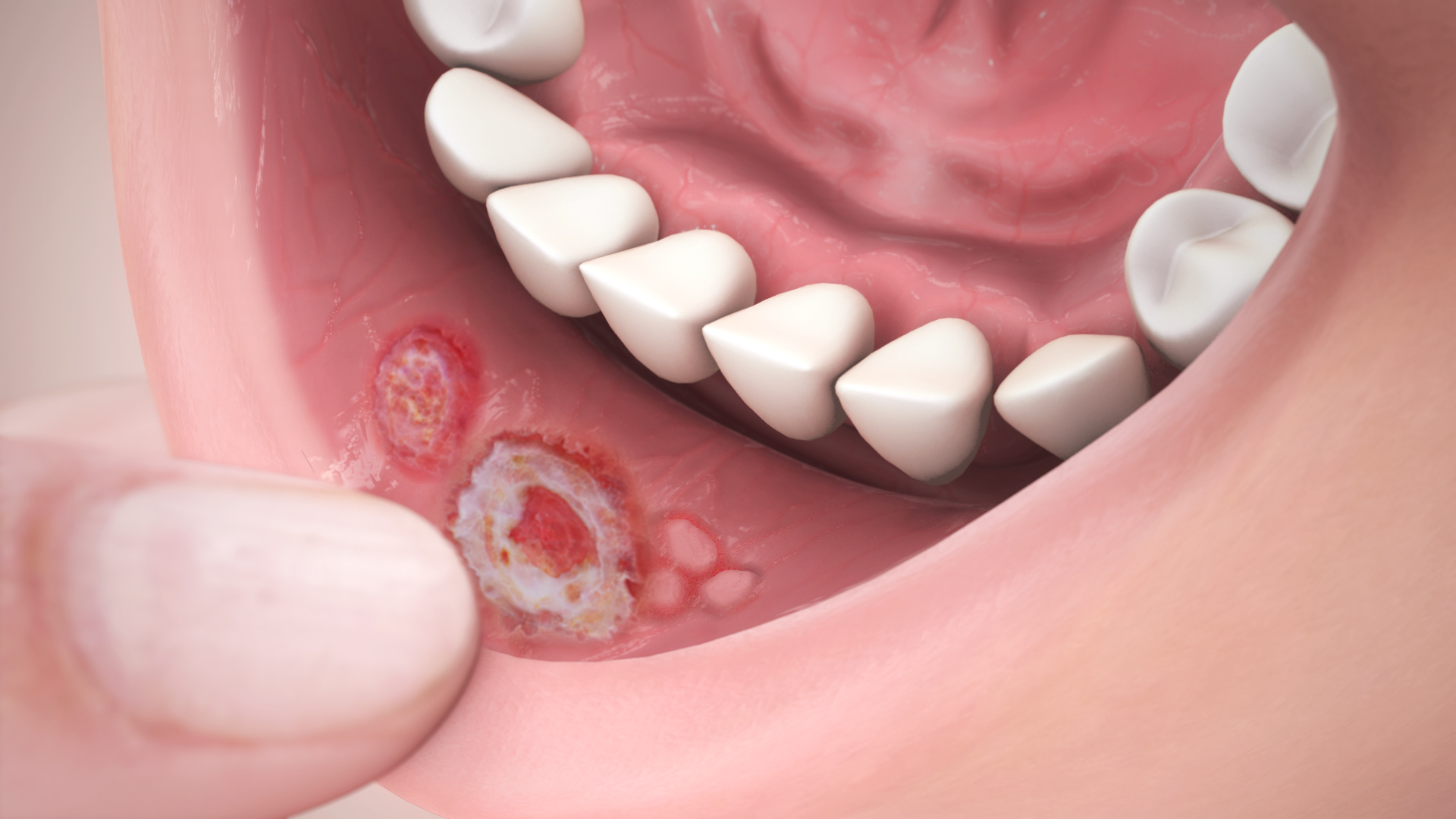Aphthous ulcers or canker sores are the most common type of mouth ulcers. These ulcers or sores are small lesions that are shallow and cause a lot of pain to the patients, making them unable to eat and talk. Unlike cold sores, canker sores don’t appear on the surface of the lips. They can appear on or under the tongue, base of gums, on soft palate or inside cheeks or lips. Canker sores are white or yellow in appearance. They are usually smaller in size and go back in one or two weeks. If the ulcer seems pretty large or fails to heal on its own, proper medical consultation should be sought.

Types of canker sores(Aphthous Ulcer)-
Minor, major and herpetiform canker sores are a few types of canker sores, found in patients.
Minor canker sores: These are small and heal without leaving any scars in one or two weeks.
Major canker sores: These are deeper, extremely painful, and may take up to six weeks for healing and may leave extensive scars.
Herpetiform canker sores: These are rare and usually develop later in life. This type of canker sores are of a pinpoint size and appear in clusters, often forming a huge ulcer with irregular edges. They heal without leaving any scars in one to two weeks.
Symptoms
The signs and symptoms of aphthous ulcers include:
- A painful reddish area in the mouth
- Tingling sensation in the mouth
- Mouth ulcers which are small and white or yellowish in color and oval-shaped
- Fever
- A general feeling of ailment
- Swollen lymph nodes
There are a few symptoms which can lead to further complications if left untreated, canker sores can cause the following issues to the patient:
- Fever
- Fatigue
- Cellulitis
- Pain while eating, talking, brushing,
- Spreading of sores outside the mouth of the patient
Causes
The exact cause behind the occurrence of aphthous ulcers is unclear to the medical professionals, but some of the following factors are assumed to play a crucial role in the emergence of canker sores:
- Sodium lauryl sulfate toothpaste and mouth rinses
- Food sensitivities or allergies
- Emotional stress
- Menstruation hormonal shifts
- Bacteria named Helicobacter pylori
- Allergic response to certain bacteria
- Injury to mouth due to dental work, rash brushing, accidental cheek bite or sports injuries
- Vitamin B-12, folate, iron and zinc lacking diet
- Celiac disease
- HIV/AIDS
- Faulty immune system
- Inflammatory bowel disease
- Behcet’s disease
- Viral infection
Treatment
As per medical resources, canker sores are known to heal by themselves. Sometimes patients are recommended some lifestyle changes for treatment of the canker sores. Some medications which are generally prescribed by the doctors for relief from canker sores are the following:
- Benzocaine like Orabase, Kank-A, and Zilactin-B
- Fluocinodine like Vanos
- Hydrogen peroxide rinses such as Peroxyl and Orajel
Apart from this, the dentist or doctors can also recommend:
- Antimicrobial mouthwashes such as Listerine or chlorhexidine mouthwashes like Peridex or Periogard
- Corticosteroid ointments like beclomethasone or hydrocortisone hemisuccinate
- Dexamethasone or lidocaine prescription mouthwash for relief from pain and inflammation
- Antibiotic mouthwashes or pills containing doxycyclines like Monodox, Vibramycin, and Adoxa
By gargling with mouthwash or salted water, pain and discomfort can be reduced. Doctors also recommend brushing and flossing teeth and advise patients to refrain from spicy foods. Drinking milk, eating yogurt, and ice cream can help in reducing the pain and speed up the healing process.
Disclaimer: The information in no way constitutes, or should be construed as medical advice. Nor is the above article an endorsement of any research findings discussed in the article an endorsement for any of the source publications.








